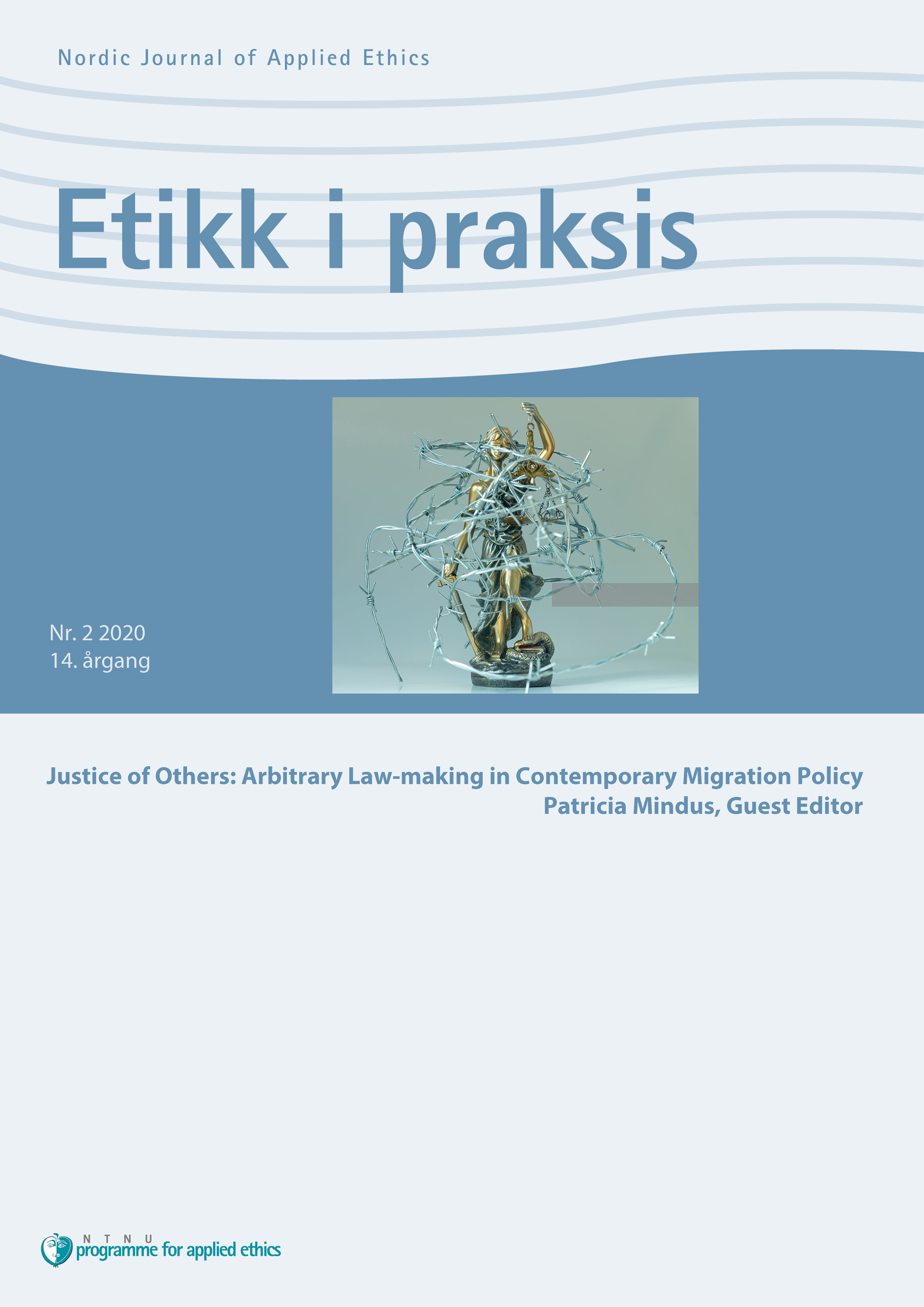Framing the Refugee
DOI:
https://doi.org/10.5324/eip.v14i2.3489Resumé
‘Framing the Refugee’ looks at the power of representation of liberal political theory with regard to refugees. In the author’s view, legal and political arbitrariness lies in the representing of refugees as lacking agency. His key point is that liberalism fails to conceive of refugees as politically capable actors, and he is thus complicit in the arbitrary neutralisation of their emancipatory potential and participatory powers. This paper emphasises the moral justifiability of that state of affairs by seeking some answers to the question of why liberal political theory construes a concept of the refugee that does not contain any element of political agency. Most obviously, the author acknowledges that refugees perform a significant social role in contemporary societies and are hence active members in them. Nonetheless, they remain neglected in their political role by most political theory. What does it mean to have political agency for the author? It means to have the power of self-representation, that is, of being allowed and even enabled by a given legal system to bring about change in the political order, or at least to participate in that change. But the author also calls attention to the role of ‘theory’ in addressing this downside of the contemporary liberal democratic order. Theory becomes even more crucial at times of urgency, that is, when theorists have a moral responsibility to deepen their philosophical imagination, as Hannah Arendt so forcefully noted. The theoretical task of ‘re-framing’ the refugee entails reconfiguring political philosophy and its traditional categories of sovereignty, citizenship and nationality. The liberal inability to accommodate the political agency of many members of the political community – especially of non-nationals – is a sign of the historical contingency of the current rules of political membership. This inability makes evident the imperative of rethinking politics in ways that avoid the arbitrariness of treatment and aim instead at equality and justice. If political leaders can re-write the rules of membership to suit their own ideological agendas, the same demand should be addressed by – indeed demanded from – political and legal theorists. However, this is not as easy as it seems, according to the author. In his view, political theory is confronted with fundamental challenges, the most obvious one being that ‘theory’ is usually unequipped to defeat its own ‘topology’. Note that in saying this the author is raising a more pressing concern about arbitrary law-making: it may be that arbitrariness – especially the arbitrary treatment of aliens by the sovereign state and by liberal democracies in particular – is inscribed in the very DNA of liberalism. No matter how odd this may seem, the author advances the view that ideas, however creative of a new order, or transformative of a given status quo, never appear in "free form", and are instead deeply rooted in a structure that constrains our imagination. The challenge is thus to develop a meta-theory that reconceptualises the very way liberal political theory frames marginalised sectors of society – such as the "poor" – as a product of an international economic order that robs those sectors of their agency as the very condition of its internal functioning. We must therefore question how the very idea of the refugee is produced, because it symbolises the construction of an inside and an outside that is complicit with the arbitrary play of legal statuses involved in migration policy. The author’s main point regarding this is that certain groups are sidelined by economic, political and social systems because they are already excluded from theoretical systems to start with.
Keywords: refugees, agency, political theory, migration
Downloads
Downloads
Publiceret
Citation/Eksport
Nummer
Sektion
Licens
Copyright (c) 2020 Phil Cole

Dette værk er under følgende licens Creative Commons Navngivelse (by).


